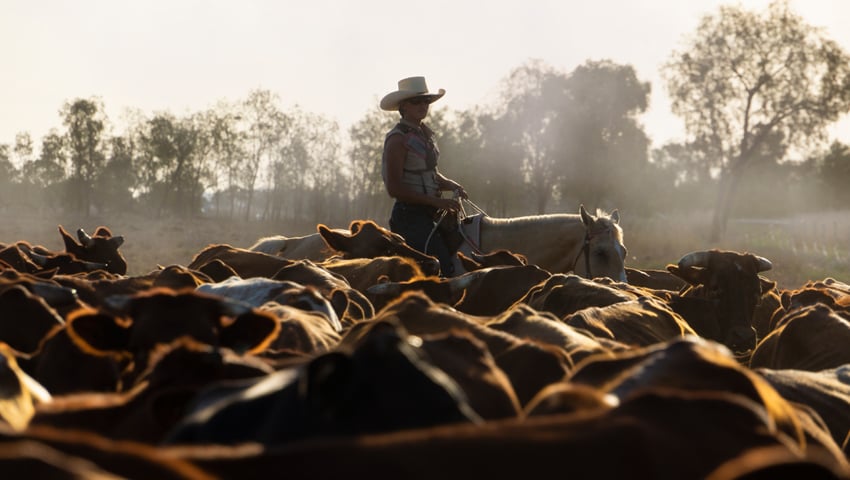A FORMER United Nations chief scientist has said that the global movement to limit climate change provides an opportunity for livestock producers – with the potential to increase yields and capitalise on environmental markets.
Professor Jacqueline McGlade is now a cattle producer in Kenya and the co-founder of Downforce Technologies, which uses a mixture of publicly-available data and satellite technology to measure the natural capital assets on farms.
McGlade said that research shows that marginal improvements to agricultural soils around the world would store enough carbon to keep the world within 1.5C of global heating. Ruminants, particularly cattle, are central agents in regenerative land management.
The Guardian reports that “Farming techniques that improve long-term fertility and yields can also help to store more carbon in soils but are often ignored in favour of intensive techniques using large amounts of artificial fertiliser, much of it wasted, that can increase greenhouse gas emissions.
“Using better farming techniques to store 1% more carbon in about half of the world’s agricultural soils would be enough to absorb about 31 gigatonnes of carbon dioxide a year, according to new data. That amount is not far off the 32 gigatonnes gap between current planned emissions reduction globally per year and the amount of carbon that must be cut by 2030 to stay within 1.5C.”
McGlade told Australian publication, Beef Central, that the Australian cattle industry was a big part of answer to managing the environment. She said “If cattle were not on the ground a lot of land in Australia would deteriorate, you would have invasive pests coming in and you would not have a natural source of manure.”
She said “As the chief scientist I used to think about where you could have the most impact and the Australian beef industry is unique in that sense because it so big and so intensively looked after.”
McGlade said that land management change was needed – but that even a small improvement in land condition would make a huge difference.
“If you can change the amount of carbon that goes into the soil, you will change the landscape and keep feeding a lot of people – just doing it in a way that is not detrimental to the environment,” McGlade told Beef Central.
“Having healthy cows on healthy pasture is key to the whole concept,” said McGlade, “and will maintain a completely different landscape to what you would see without them. I see cattle as being instrumental to the change we need for the climate. Even in the more intensive parts of the industry, I think when it is done well cattle are a vital part of the landscape.”
The Guardian reports that “The estimates were carried out by Jacqueline McGlade, the former chief scientist at the UN environment programme and former executive director of the European Environment Agency. She found that storing more carbon in the top 30cm of agricultural soils would be feasible in many regions where soils are currently degraded.”
“Outside the farming sector, people do not understand how important soils are to the climate,” said McGlade. “Changing farming could make soils carbon negative, making them absorb carbon, and reducing the cost of farming.”
She said farmers could face a short-term cost while they changed their methods, away from the overuse of artificial fertiliser, but after a transition period of two to three years their yields would improve and their soils would be much healthier and more productive.
